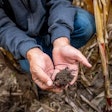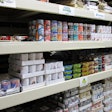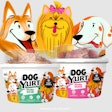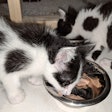
An audit by the Unites States Department of Agriculture (USDA) Office of the Inspector General found that imported organic farm products, potentially including organic pet food ingredients, may fail to meet US standards for organic agriculture. The auditors stated that the USDA Agricultural Marketing Service’s National Organic Program needed to improve its control over the approval and oversight of international trade arrangements related to the importation of organic products into the US.
USDA auditors found that some organic produce was fumigated with synthetic chemicals at US ports. However, AMS failed to implement controls to ensure that these fumigated crops were not labeled, sold or otherwise represented as organic.
Full text of USDA Office of Inspector General audit report
Also, AMS lacked transparency in the process used to determine if other nation’s organic standards were equivalent to those in the US, according to the USDA audit. After evaluating the equivalency in organic standards, AMS didn’t have a method for sharing their results with the public or other stakeholders.
Once supposedly organic produce arrived at US ports, USDA auditors were unsure that required documents were being reviewed to ensure that the imports were indeed from certified organic foreign farms and businesses that produce and sell organic products.
AMS response to imported organic products audit
AMS administrators responded to an initial auditors’ report, issued in August, with nine management decisions meant to address the problems with imported organic products. By USDA regulation, AMS now has one year to take final action on its management decisions to prevent being listed in the USDA’s annual Agency Financial Report.
Organic regulations for pet food
Organic human and pet foods remain governed by the same AMS NOP regulations, according to the American Association of Feed Control Officials (AAFCO). The federal organic certification program uses third-party inspectors to determine if agricultural operation, including farms growing pet food ingredients, that meet federal regulatory standards.
For organic pet food, there are extra regulations. NOP does not supersede state organic livestock feed laws or United States Food and Drug Administration regulations. So, organic pet foods must fully comply with labeling, safety and utility requirements for livestock feed ingredients and feeds, along with organic human food regulations, on multiple levels.
Purchasing rates for organic pet food have stagnated and even fallen over the past few years, as tracked by Simmons Market Research surveys from 2012 to 2014 and analyzed by Packaged Facts (see infographic below). Organic pet food sales make up less than one percent of the market in the pet specialty channel, and market penetration in mass outlets is even smaller, according to Gfk data.


















